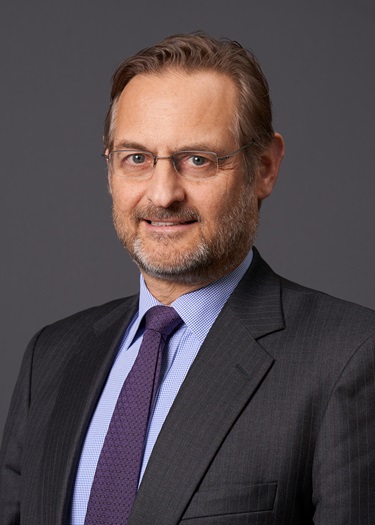Addressing medicinal product shortages has been high on the agenda of European Union (EU) and member state regulators for some time. January 25, 2022 marks the EU adoption of legislation reinforcing the role of the European Medicines Agency (EMA) in crisis preparedness and management for medicinal products and medical devices (see here). The regulation, which will soon be published in the EU’s Official Journal, will apply from March 1, 2022. It aims, inter alia, at providing more transparency in the supply chain by increasing involvement of stakeholders in the process and fostering synergies among EU agencies.
In a related development, a recent European Commission (Commission) report identified the root causes of medicinal product shortages and proposed various action points to be addressed by European regulators in the coming years. And in Germany, the newly formed government promised to address medicinal product shortages, underscoring the importance of the issue. Pharmaceutical and medical device companies operating in the EU should stay abreast of the ongoing developments and conversations in this field and are well advised to have a position statement ready for any stakeholder consultation that may be opened.
New EU Legislation
Under this important new legislation, previously reported here, the EMA will establish a new European Shortages Monitoring Platform as a key tool for the EMA to monitor the supply of medicines and prevent shortages. In addition, the EMA will set up steering groups for medicinal products and medical devices to coordinate urgent actions and draw up lists of critical medicinal products and devices so that their supply can be managed. The proposal is available here.
The regulation is in part the result of the realization by EU regulators that they were limited in their ability to coordinate the continued availability of medicinal products and medical devices during the COVID-19 crisis, when ad hoc solutions needed to be found to contain the risk of shortages of products such as ventilators, surgical masks, and test kits. In addition to creating new tasks for the European regulators, the new regulation places several new obligations on economic operators, including marketing authorization holders, medical device manufacturers, authorized representatives, and notified bodies.
Root Causes of Shortages Identified
In November 2021, the Commission published a 283-page report entitled “Future-proofing pharmaceutical legislation — study on medicine shortages,” available here. In its report, the Commission noted that while Articles 23a and 81 of Directive 2001/83/EC contain provisions to help prevent shortages, greater adoption of harmonized definitions and criteria as well as uniform implementation of guidelines would be helpful in managing the problem more adequately. This conclusion does not necessarily come as news, given that the European Federation of Pharmaceutical Industries and Associations identified a lack of harmonization as one root cause of medicinal product shortages already in early 2020, as we reported here. However, it was interesting to read that the Commission’s report confirmed previous analyses of root causes of medicinal product shortages on the basis of the thus-far largest set of data for such root causes.
The Commission concluded in its report that although shortages are driven by a combination of factors, generally shortages are localized and not necessarily the result of global shortages. Most of the time, shortages relate to issues with quality and manufacturing as well as commercial reasons (e.g., market withdrawals) and unexpected increases in demand.
The Commission proposed 16 improvements to be considered by the Commission, the EMA, and/or member states, including
- setting up stakeholder dialogue platforms for/among supply chain stakeholders, patients, and healthcare providers, respectively, at the member states level
- developing EU-wide and uniform legislation allowing for imposing financial sanctions if notification requirements and/or supply responsibilities are not met
- requiring greater transparency of industry supply quotas as well as parallel traders’ and wholesalers’ transactions
- requiring suppliers to have adequate shortage prevention and mitigation plans in place
- introducing legal obligations for marketing authorization holders (MAHs) and wholesalers to maintain a safety stock of (unfinished) products for medicines of major therapeutic interest at the EU level
Germany’s Approach to Shortages
The new German government, formed at the end of 2021, included into its coalition agreement different approaches to mitigate shortages. For example, the agreement noted that efficient and decentralized stockpiling of medicinal products and medical devices as well as regular emergency exercises for health risk personnel should be ensured by the adoption of a healthcare assurance act (Gesundheitssicherstellungsgesetz). In addition, the coalition agreement discussed the relocation of production of medicinal products, including active pharmaceutical ingredients and excipients, back to Germany or to the EU. The German government mentioned that it would do so by reducing bureaucracy, examining investment subsidies for production sites, and looking into subsidies to ensure security of supply. Those subsidies could be regulated in advance via discount agreements between the statutory health insurances and MAHs (Rabattvertrag).
Be Stakeholder Ready
EU and German policy initiatives are zooming in on tackling the issue of medicinal product and medical devices shortages. While certain steps to regulate the issue have already been taken, more will undoubtedly be done, and the introduction of greater, more cumbersome obligations on economic operators operating in the EU can be expected. Accordingly, pharmaceutical companies and medical device manufacturers operating in the EU should closely monitor the ongoing developments and discussions at both the EU and the national level and are well advised to have a position statement ready for any stakeholder consultation that may be opened.
Attorney Advertising—Sidley Austin LLP is a global law firm. Our addresses and contact information can be found at www.sidley.com/en/locations/offices.
Sidley provides this information as a service to clients and other friends for educational purposes only. It should not be construed or relied on as legal advice or to create a lawyer-client relationship. Readers should not act upon this information without seeking advice from professional advisers. Sidley and Sidley Austin refer to Sidley Austin LLP and affiliated partnerships as explained at www.sidley.com/disclaimer.
© Sidley Austin LLP


